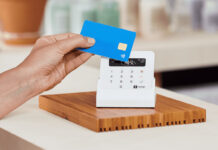Keeping on top of temperature is key
THERE’S no more effective way to tank a business in the on-trade than gaining a reputation for poor food hygiene standards, with consequences ranging from a bad reputation to a big fine.

With health and safety regulations leaving the door open for non-compliant operators to face an unlimited fine or even up to six months imprisonment, high food safety standards are vital.
Luisa Coates, marketing manager at digital thermometer firm Electronic Temperature Instruments Ltd (ETI), suggested that recent outbreaks of both E.coli and norovirus at national food chains have placed food safety firmly in the spotlight, helping to “raise awareness of the importance of food safety”. Despite this, she reckons there are still “far too many commercial kitchens that do not use a food thermometer on a regular basis”, adding that there are obvious benefits for businesses that do.
“The benefit of using an accurate thermometer is in the peace of mind and knowledge that you are not going to give customers food poisoning,” said Coates.
The main benefit of using an electronic thermometer in the kitchen is the ability to ensure all food is cooked safely, however Coates suggested temperature equipment can have other safety benefits in a commercial environment.
Coates reckons it’s best practice to calibrate kitchen temperatures against a “known accurate thermometer” and from there, operators can keep on top of equipment across the kitchen.
“Maintaining accurate temperatures of equipment like refrigerators and freezers makes good business sense, as does maintaining the correct storage temperatures of food items which can minimise wastage,” said Coates.
“The daily taking of equipment temperatures can also highlight potential problems.
“Any out-of-range temperatures should be recorded and require prompt and immediate action to fix the problem, with results of these actions documented.”
To get the full benefits of accurate temperature reading equipment, Coates added that it can’t just be left to the head chef, but instead suggested all kitchen employees should be “familiar with proper temperature monitoring”.
“The important aspect here is employee training, and ensuring that the taking of key temperatures is a routine everyday operation,” added Coates.
“One person should be assigned primary responsibility for maintaining temperature logs of equipment, along with one backup person.
“Temperature logs should be reviewed by the backup person at least weekly.”



















